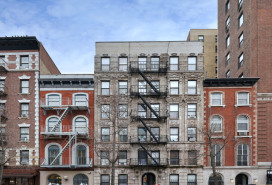My landlord wants me to become the superintendent. What do I need to know?

You and the other tenants may be required to handle your own cleaning and maintenance, depending on the size of your building.
Several years ago, my building's management asked me if I could field calls on the weekends when the office was closed, and direct complaints and requests for repairs to an emergency number. I agreed, with no reimbursement. Now the landlord wants to make it official.
I’ve been told I would have no responsibility in directly solving issues my fellow tenants have, i.e. no mopping floors, changing lightbulbs, fixing plumbing or boiler malfunctions. I would only continue to field calls and direct issues to the management office. I haven’t been given any details about reimbursement. Does this sound fishy? What are the legal responsibilities of a super?
Your landlord's request may be aboveboard depending on the size of your building, according to our experts.
"The short answer is, if the reader is being asked to become an 'official' superintendent (or, janitor) for the building, then he or she may be required to perform the duties that are described in the second paragraph of their question," says Vladimir Favilukis, a partner at Belkin Burden Wenig & Goldman, LLP.
Under the city's housing maintenance code, any building that has nine or more units must have either a janitor, an owner who provides janitorial services, or a 24/7 janitorial service available. The code also requires that a janitor live either in the building or within a block or 200 feet of the building (whichever distance is greater.)
Furthermore, Favilukis explains, the code defines a janitor as someone who performs duties like cleaning and maintenance, operating the furnace and boiler, removing garbage, and shoveling snow.
If your building has nine or more units, then, it must have a dedicated super who can handle these responsibilities living in or near the property. If your building is smaller, then your landlord's request may not be so fishy, but you should still proceed with caution before you accept.
"I wouldn’t jump to this arrangement for a few reasons," says Mark Levine, principal at Excel Bradshaw Management Group. "First, there is no compensation involved. The second is the responsibility factor on the tenant and the liability of the landlord. If the landlord pr owner of the building is having someone act as an unofficial employee of the building without proper compensation and in turn proper insurance coverage, the owner or 'superintendent' can run into a variety of issues should something go wrong."
He suggests that if you do choose to move forward with this arrangement, you should make sure to have a formal contract in place detailing your compensation and responsibilities.
Trouble at home? Get your NYC apartment-dweller questions answered by an expert! Send us your questions at [email protected].
For more Ask an Expert questions and answers, click here.
You Might Also Like

























